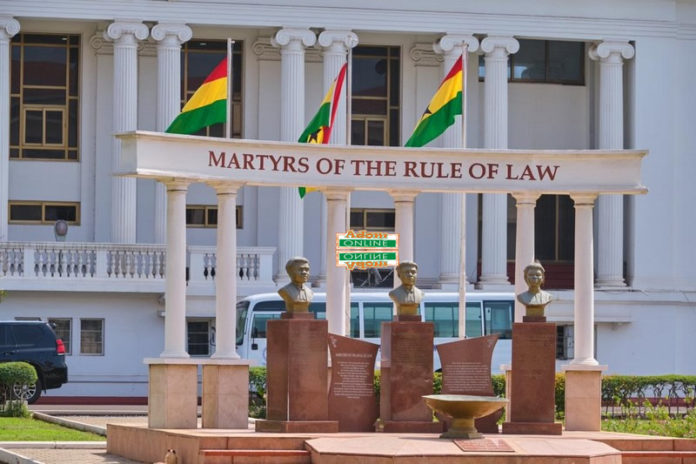
A seven-member panel of the court struck out the suit following a new law by Parliament which amended the law and decriminalised attempted suicide, rendering the legal action moot.
During the hearing of the suit, the Justices of the Supreme Court led by Justice Paul Baffoe-Bonnie, asked State Attorneys defending the state in the suit whether they were aware of the new law passed by Parliament which had expunged the offence of attempted suicide.
The lawyers answered in the affirmative. Subsequently, the court struck out the suit. “Because of the passage of the Criminal Offences (Amendment) Act, 2021, this action is moot and, therefore, struck out,” Justice Baffoe-Bonnie ruled.
Other members of the panel were Justices Avril Lovelace Johnson, Issifu Omoro Tanko Amadu, Emmanuel Yonny Kulendi, Ernest Yao Gaewu, Yaw Darko Asare and Richard Adjei-Frimpong.
Suit
In 2021, a lawyer, Christian Lebrechet Malm-Hesse, went to the Supreme Court with a case that Section 57 (2) of the Criminal Offences Act, 1960 (Act 29), which made attempted suicide a criminal offence was unconstitutional.
A private legal practitioner has filed a suit at the Supreme Court urging the court to decriminalise “attempt to commit suicide”. In a suit invoking the jurisdiction of the court, Mr Malm-Hesse argued that Section 57 (2) of the Criminal Offences Act, 1960 (Act 29), which makes attempted suicide a criminal offence is unconstitutional.
Hitherto, Section 57 (2) of Act 29 made “attempt to commit suicide” a misdemeanour which carried a punishment of up to three years’ imprisonment. It was his case that any person who attempted to commit suicide was suffering from a mental disability and should be given psychological treatment and not be incarcerated.
He contended that a mentally challenged person could not have an intent (mens rea) to commit a crime. In view of that, he argued that the offence of “attempt to commit suicide” could not be classified as a crime, since the mental element required to make it a crime did not exist.
“A person who has a malfunctioning mind does not have the mind to form a mens rea to commit a crime,” the plaintiff averred Also, he argued that it was unconstitutional for a suicidal person to be punished for putting such a mental disability into action.
Punishing a person who attempts to commit suicide, he argued, meant the person was being discriminated against based on his disability. The plaintiff, therefore, wanted the apex court to declare as unconstitutional Section 57 (2) Act 29 on the basis that it violated Article 15 of the 1992 Constitution (respect for human dignity), Article 17 (freedom from discrimination), and Article 29 (rights of disabled persons).
New law
Following numerous advocacy from civil society organisations, psychologists and other interest groups, Parliament in March, last year, amended Act 29 and expunged ‘attempted suicide’ from the penal code of the country.
The private members’ bill was sponsored by the New Patriotic Party Member of Parliament (MP) for Asante Akim Central, Kwame Anyimadu-Antwi and the National Democratic Congress MP for Akatsi South, Bernard Ahiafor.
The overall aim of the bill was to concede that attempted suicide is a mental health condition, and thus, to provide opportunities to support those who may be found in those circumstances.
The law will also help decongest the prisons and reduce caseloads on prosecutors.
ALSO READ:






